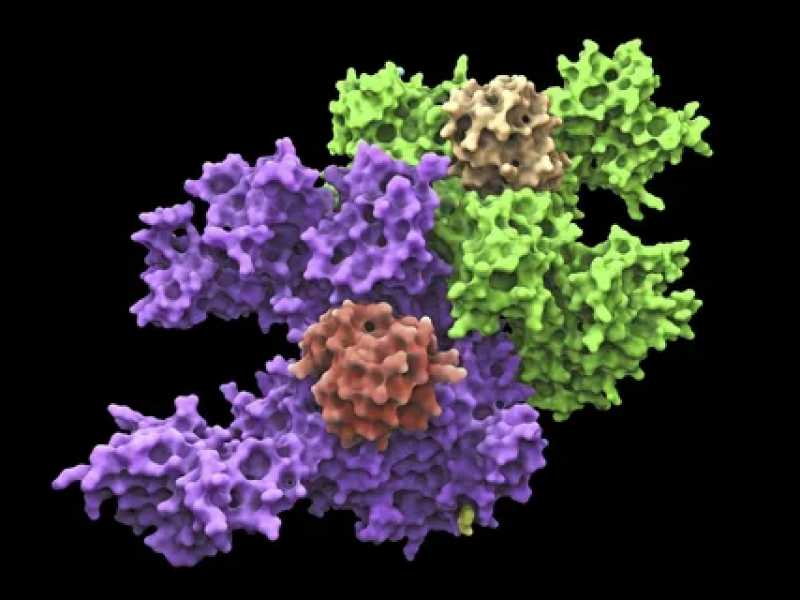Ubiquitin enzymes play an indispensable role in maintaining cellular homeostasis through the ubiquitination process, a post-translational modification that regulates protein degradation, signaling, and DNA repair mechanisms. These enzymes are fundamentally involved in tagging defective, misfolded, or regulatory proteins with ubiquitin molecules, marking them for specific cellular fates, primarily proteasomal degradation. The ubiquitin-proteasome system is crucial for diverse cellular activities including cell cycle control, apoptosis, and immune responses, making ubiquitin enzymes central to the biological machinery.
Key Classes and Mechanisms of Ubiquitin Enzymes in Cellular Regulation
Ubiquitin Enzymes involves a cascade of enzymatic reactions facilitated by three main enzyme types: E1 ubiquitin-activating enzymes, E2 ubiquitin-conjugating enzymes, and E3 ubiquitin ligases. The interplay among these enzymes is precise and highly regulated. Initially, E1 enzymes activate ubiquitin by forming a high-energy thiol-ester bond. Subsequently, ubiquitin is transferred to E2 enzymes, which function as carriers, presenting ubiquitin to E3 ligases. E3 ubiquitin ligases confer substrate specificity, recognizing target proteins and catalyzing the transfer of ubiquitin from E2s to these substrates. This specificity is critical for ensuring that only particular proteins are marked for degradation or modulated in function.
Among these, E3 ligases are the most diverse and numerous, and they determine the fate of ubiquitinated proteins. These ligases can create polyubiquitin chains linked through different lysine residues on ubiquitin molecules, influencing downstream effects such as proteasomal degradation or involvement in DNA repair pathways. The elaborate structural features of ubiquitin enzymes enable cells to maintain balance and respond swiftly to environmental stresses and internal cues.
Addressing the Functional Diversity of Ubiquitin Enzymes in Health and Disease
The ubiquitin system’s multifaceted roles extend well beyond simple protein degradation. It governs vital processes such as receptor endocytosis, signal transduction, and transcriptional regulation. Dysfunction or mutations in ubiquitin enzymes have been linked to a spectrum of diseases. For instance, aberrations in certain E3 ligases can lead to unchecked cell proliferation and tumorigenesis, making them attractive targets for anti-cancer therapies. Similarly, malfunctions in ubiquitin-conjugating enzymes correlate with neurodegenerative disorders like Parkinson’s and Alzheimer’s, where protein aggregation is a hallmark.
Furthermore, immune responses are modulated through ubiquitin-dependent pathways, highlighting the system’s involvement in inflammation and autoimmune disorders. The intricate regulation by ubiquitin enzymes thus represents a critical node in maintaining cellular equilibrium and facilitating signal accuracy. Researchers continue to explore specific ubiquitin enzymes as biomarkers for disease progression and responsiveness to treatment, expanding their commercial potential in diagnostics and personalized medicine.
Navigating Ubiquitin Enzyme Market Research and Industry Growth Analysis
For stakeholders aiming to explore technological advancements, competitive landscapes, and emerging trends in ubiquitin enzyme research and biotechnology applications, detailed industry and market research reports provide invaluable data. These comprehensive reports cover market segmentation by enzyme types, application fields such as pharmaceuticals, diagnostics, and research reagents, and analyze developments across geographic regions. Tracking funding pipelines, patent activities, and collaborations further informs strategic decision-making in this sector.
Such market insights facilitate the identification of key players focusing on enzyme engineering, innovative therapeutics, and commercial enzyme kits related to the ubiquitin-proteasome system. Companies active in enzyme discovery and antibody production for ubiquitin enzymes also benefit from these deep-dive analyses highlighting competitive advantages and investment opportunities. Accessing up-to-date market intelligence helps align product development with evolving customer needs and regulatory landscapes.
Commercial Availability and Application of Ubiquitin Enzyme Products
The commercial landscape offers a growing portfolio of products centered on ubiquitin enzymes, encompassing recombinant enzymes, assay kits, and inhibitors aimed at modulating ubiquitination pathways. These products serve academic research, pharmaceutical drug discovery, and clinical diagnostic applications. Recombinant E1, E2, and E3 enzymes allow scientists to study ubiquitination mechanisms in vitro, accelerating the identification of novel regulatory pathways and potential drug targets.
Pharmaceutical companies are actively investing in small-molecule modulators and biologics targeting specific ubiquitin enzymes, demonstrating promising results in preclinical and clinical trials. The increasing demand for quality reagents and robust assay systems to elucidate ubiquitin enzyme functions reflects the expanding role of this field in modern biomedical research. Transparency in supply chain and product efficacy alongside compliance with quality standards are pivotal to sustaining market growth.
Get This Report in Japanese Language: ユビキチン酵素
Get This Report in Korean Language: 유비퀴틴 효소
Read More Articles Related to this Industry- Recent Developments in the CRISPR Technology Industry
About Author:
Ravina Pandya, Content Writer, has a strong foothold in the market research industry. She specializes in writing well-researched articles from different industries, including food and beverages, information and technology, healthcare, chemical and materials, etc. (https://www.linkedin.com/in/ravina-pandya-1a3984191)
